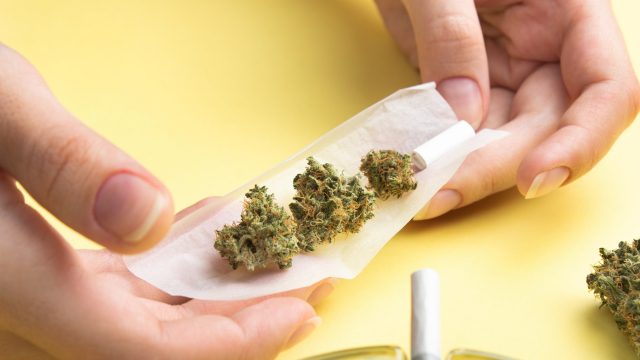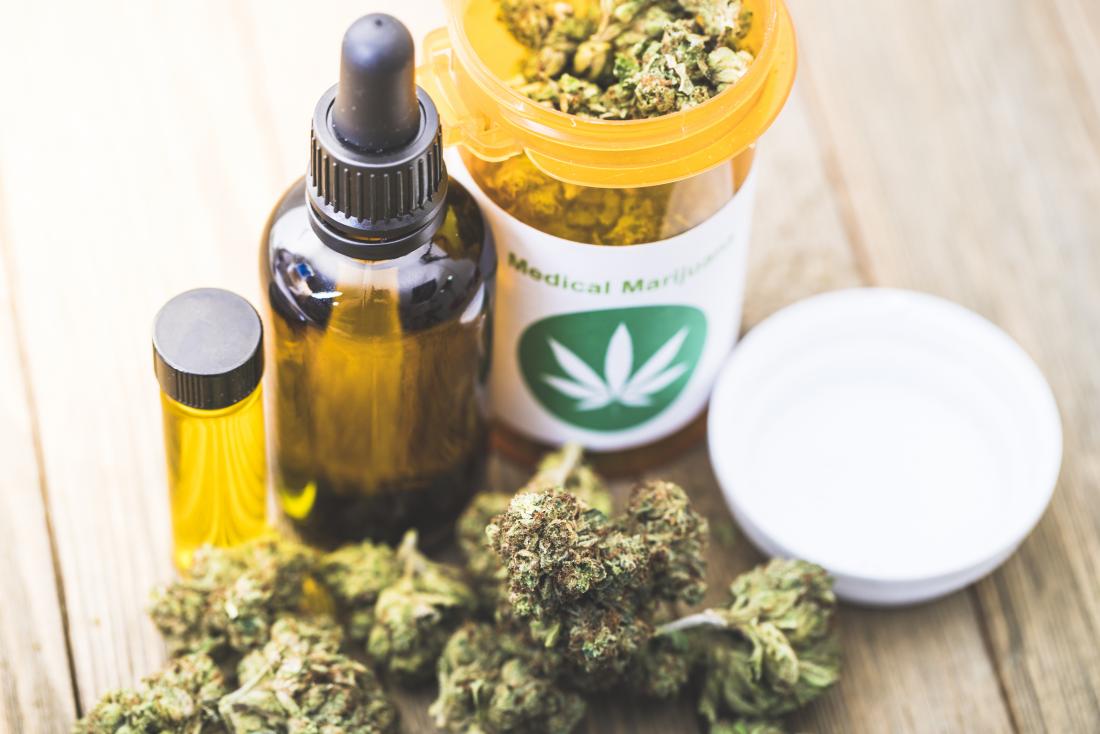Medical cannabis can aid in managing various health concerns associated with aging. As the senior population grows, exploring the potential benefits of medical cannabis becomes increasingly important.
As people age, they experience various health concerns like chronic pain, insomnia, anxiety, and depression. These health issues make it challenging for them to carry out daily activities or enjoy a high quality of life. In recent years, researchers have explored the potential benefits of medical cannabis, particularly for seniors.
Studies indicate that medical cannabis can alleviate symptoms such as chronic pain, anxiety, and insomnia. Cannabis could also prevent memory loss, which is common with old age. Medical cannabis can also aid in treating glaucoma, reduce chemotherapy-related nausea, and stimulate appetite in those with cancer-induced anorexia. All these benefits make medical cannabis an attractive treatment option for seniors who are looking to improve their quality of life.

Credit: www.amazon.com
Understanding Medical Cannabis
Medical cannabis, also known as medical marijuana, has become an increasingly popular topic, especially when it comes to managing health issues related to aging. Medical cannabis can help with a variety of health conditions, including chronic pain, sleep disorders, anxiety, and depression.
However, before understanding its benefits, it is essential to understand the basics of medical cannabis. In this section, we will discuss the key points related to medical cannabis.
What Is Medical Cannabis?
Medical cannabis is derived from the cannabis plant and is used for medicinal purposes. It is also known as medical marijuana. Unlike recreational marijuana, medical cannabis is used to treat specific health issues and symptoms. Medical cannabis is available in various forms such as capsules, oils, tinctures, and edibles.
Here are a few key points to know about medical cannabis:
- Medical cannabis contains active compounds called cannabinoids, which interact with the body’s endocannabinoid system to provide the therapeutic effects.
- Medical cannabis is primarily prescribed to help alleviate symptoms related to chronic pain, anxiety, depression, and sleep disorders.
- Medical cannabis can cause side effects such as dry mouth, fatigue, and increased appetite.
Cannabinoids: The Compounds Found In Marijuana
Cannabinoids are the active compounds found in marijuana that interact with the body’s endocannabinoid system. The two most common cannabinoids found in medical cannabis are tetrahydrocannabinol (thc) and cannabidiol (cbd).
Here are a few key points to know about cannabinoids:
- Thc is the compound responsible for the psychoactive effects of marijuana, such as feeling high.
- Cbd is a non-psychoactive compound and does not cause a high.
- Both thc and cbd have therapeutic benefits and can be used to treat various health conditions.
Thc Vs Cbd: What’S The Difference?
Thc and cbd are the two primary cannabinoids found in medical cannabis. However, these compounds have different effects on the body and are used to treat different health conditions.
Here are a few key points to know about thc and cbd:
- Thc is primarily used to alleviate symptoms related to chronic pain, nausea, and vomiting.
- Cbd is most commonly used to treat anxiety, depression, and inflammation.
- Thc can cause side effects such as dizziness, dry mouth, and increased heart rate, while cbd has minimal side effects.
How Medical Cannabis Works With The Body’S Endocannabinoid System
The human body has an endocannabinoid system that interacts with the cannabinoids found in medical cannabis. This system is responsible for regulating various physiological and cognitive processes, including pain, cognition, and mood.
Here are a few key points to know about the endocannabinoid system:
- The endocannabinoid system consists of three components: Endocannabinoids, receptors, and enzymes.
- Endocannabinoids are similar in structure to cannabinoids found in medical cannabis and are produced naturally by the body.
- Receptors are found throughout the body and interact with the endocannabinoids and cannabinoids found in medical cannabis to provide therapeutic effects.
Medical cannabis is a promising alternative for managing various health issues related to aging. However, it’s essential to understand its components, including cannabinoids, thc, and cbd, and its interaction with the body’s endocannabinoid system. Before using medical cannabis, consult and follow the advice of a healthcare professional.
Medical Cannabis For Seniors: Benefits And Usage
As we age, our bodies undergo several changes that can lead to chronic pain, insomnia, stress, anxiety, neurodegenerative diseases, and arthritis. Medical cannabis has shown potential in easing symptoms of many of these age-related health conditions. In this section, we’ll discuss how medical cannabis can benefit seniors and its usage.
Alleviating Chronic Pain In Seniors
Chronic pain is a common problem among seniors, and it can greatly interfere with their quality of life. Medical cannabis can help alleviate chronic pain by reducing inflammation and modulating pain signals in the brain. Here are some key points about the use of medical cannabis for relieving chronic pain in seniors:
- Medical cannabis can reduce pain intensity and improve sleep in seniors with chronic pain.
- Thc and cbd are two major cannabinoids that can alleviate pain and inflammation.
- Medical cannabis products with high cbd content and low thc content are safe and effective for treating chronic pain in seniors and are less likely to have psychoactive effects.
Improving Sleep Quality
Insomnia is another common problem that affects many seniors. Medical cannabis can improve sleep quality by reducing anxiety, pain, and inflammation. Here are some key points about using medical cannabis to improve sleep quality in seniors:
- Medical cannabis can improve sleep latency, sleep duration, and sleep quality in seniors with insomnia.
- Indica strains of cannabis are beneficial for sleep because they have high levels of sedative compounds.
- Low-dose thc products are effective for improving sleep quality without causing adverse effects.
Managing Stress And Anxiety
Stress and anxiety are common among seniors, particularly those who live alone or have chronic illnesses. Medical cannabis can help manage stress and anxiety by reducing cortisol levels and promoting relaxation. Here are some key points about using medical cannabis to manage stress and anxiety in seniors:
- Medical cannabis can reduce anxiety and stress levels in seniors and improve mood.
- Cbd is beneficial for reducing anxiety and has antipsychotic properties.
- Medical cannabis products with low thc content and high cbd content are effective for managing stress and anxiety in seniors without causing psychoactive effects.
Treating Neurodegenerative Diseases, Such As Alzheimer’S
Neurodegenerative diseases like alzheimer’s can cause cognitive decline, memory loss, and difficulty performing daily tasks. Medical cannabis has shown potential in treating these diseases by slowing down the progression of neurodegeneration and neuroinflammation. Here are some key points about using medical cannabis to treat neurodegenerative diseases in seniors:
- Medical cannabis can improve cognitive function and slow down the progression of alzheimer’s disease.
- Cbd is beneficial for reducing neuroinflammation and promoting neuroplasticity.
- Medical cannabis products with low thc content and high cbd content are effective for treating neurodegenerative diseases in seniors without causing psychoactive effects.
Reducing Symptoms Of Arthritis
Arthritis is a common problem among seniors that causes joint pain, stiffness, and swelling. Medical cannabis can reduce arthritis symptoms by reducing inflammation and pain. Here are some key points about using medical cannabis to reduce symptoms of arthritis in seniors:
- Medical cannabis can improve joint pain, stiffness, and mobility in seniors with arthritis.
- Cbd and thc are both effective for reducing arthritis pain and inflammation.
- Medical cannabis products with high thc content and low cbd content are not recommended for seniors with arthritis because they may cause psychoactive effects.
Medical cannabis has several potential benefits for seniors, including alleviating chronic pain, improving sleep quality, managing stress and anxiety, treating neurodegenerative diseases, and reducing symptoms of arthritis. It’s vital to keep in mind that seniors, like any other age group, should use medical cannabis products under medical supervision.
The Risks And Side Effects Of Medical Cannabis
Medical cannabis has become an increasingly popular alternative for treating the symptoms caused by numerous medical conditions. It has been noted to provide relief for those suffering from chronic pain, anxiety, and even cancer. However, as with any medication, there are risks and side effects that come with using medical cannabis.
This article will take a closer look at the side effects, risks, safety concerns, contradictions with other medications, dosage, and administration tips of medical cannabis for aging patients.
The Side Effects Of Medical Cannabis
Medical cannabis has both short and long-term side effects. Though the side effects are not severe, they can be worrisome, especially for aging patients who may already experience difficulties with coordination, balance, and memory retention. Some of the common side effects associated with medical cannabis use include:
- Dry mouth: This is a well-known side effect of cannabis use that can be alleviated by drinking water or using throat lozenges.
- Increased heart rate: Medical cannabis can cause an increase in heart rate, which can be concerning for those with pre-existing heart conditions.
- Dizziness: Some patients may experience dizziness or a feeling of lightheadedness after taking medical cannabis.
- Impaired memory: Thc, the psychoactive compound in cannabis, can impair short-term memory.
- Anxiety and paranoia: Medical cannabis can contribute to feelings of anxiety and paranoia, especially in patients who are already prone to these conditions.
Understanding The Risks And Safety Concerns
Just like any other medication, medical cannabis comes with certain risks and safety concerns. For aging patients, the risks may be greater due to pre-existing medical conditions, drug interactions, and other factors. Here are some of the risks and safety concerns to be aware of before using medical cannabis:
- Addiction and abuse: Though medical cannabis is generally considered safe, there is a possibility of addiction or abuse in some patients.
- Psychiatric effects: Medical cannabis can have negative effects on patients with a history of psychiatric disorders.
- Respiratory issues: Smoking or inhaling medical cannabis can lead to respiratory issues such as bronchitis.
- Cognitive impairment: Medical cannabis can also cause cognitive impairment in some patients, particularly in older patients with pre-existing cognitive issues.
Contradictions With Other Medications
Medical cannabis can have potentially harmful interactions with other medications. It is important to speak to a healthcare provider before using medical cannabis, especially if the patient is already prescribed other medications. Here are some of the possible drug interactions to look out for:
- Blood thinners: Medical cannabis can increase the risk of bleeding in patients taking blood-thinning medications.
- Anti-seizure medications: Medical cannabis can counteract the effects of anti-seizure medications, making them less effective.
- Anti-depressants: Medical cannabis should not be taken with certain anti-depressant medications as it can negate the effects of the anti-depressants.
Dosage And Administration Tips
Proper dosage and administration of medical cannabis are critical to ensure its effectiveness and minimize the risks of side effects. Here are some tips on how to administer medical cannabis effectively:
- Start with a low dose: It is recommended to start with a low dose of medical cannabis and gradually increase it until the desired effect is achieved.
- Choose the right strain: Different strains have different levels of thc and cbd, so it is important to choose the right strain for the specific medical condition.
- Consider other administration methods: Medical cannabis can be consumed in various forms such as cookies, edibles, or tinctures. It is important to choose the right method for the specific condition.
- Consult a healthcare provider: Lastly, consulting a healthcare provider who is knowledgeable about medical cannabis is important for ensuring safe and effective administration.
Medical cannabis can be an effective alternative for treating the symptoms of various medical conditions in aging patients. However, it is important to be aware of the risks and side effects, drug interactions, proper dosage, and administration methods to ensure effective treatment, minimize risks, and enjoy the full benefits of medical cannabis.
Cannabinoid-Based Treatments For Age-Related Conditions
Medical Cannabis And Aging
As we age, our bodies tend to go through many physical changes that can cause various health issues. While many people turn to traditional prescription medications to manage age-related health conditions, a growing number of older adults are discovering the benefits of cannabis-based treatments.
Cannabinoid-based treatments have been gaining widespread popularity for their ability to alleviate a wide variety of age-related conditions.
Cbd Oil
Cbd oil, or cannabidiol oil, is a non-psychoactive compound derived from the hemp plant that is commonly used to manage various age-related conditions. Cannabidiol oil is becoming increasingly popular because of its natural approach to treating certain medical issues, including the following:
- Reducing inflammation in the body
- Helping alleviate chronic pain
- Improving sleep quality
- Helping manage anxiety and depression
- Treating seizures
Thc Edibles
Thc edibles are another form of medical cannabis treatment that is gaining popularity for managing age-related health issues. Thc is the psychoactive compound in the cannabis plant that produces a ‘high’ sensation; however, it also carries numerous therapeutic benefits, including:
- Reducing chronic pain
- Helping manage anxiety and depression symptoms
- Stimulating appetite
- Improving sleep quality
It is essential to note that with thc edibles, the onset of therapeutic effects may take longer than smoking or vaping cannabis. However, the results tend to last longer, making it an ideal treatment option for individuals who require long-term treatment.
Tinctures
Tinctures are highly concentrated liquid cannabis extracts that are commonly used for managing age-related health conditions. Tinctures are placed under the tongue, where the cannabinoids get absorbed into the bloodstream through the sublingual glands. This makes tinctures a fast-acting and discreet form of cannabis treatment for various age-related conditions, such as:
- Anxiety and depression
- Sleep disorders
- Pain management
- Neurodegenerative diseases
- Cancer symptoms
Cannabinoid-based treatments have been gaining popularity in the management of age-related health conditions. While cannabis-based treatments are not for everyone, they offer a more natural approach for individuals looking for alternative treatment options to traditional pharmaceuticals. With the wide variety of treatment options, including cbd oil, thc edibles, and tinctures, individuals can find the right form of cannabis treatment that works best for their unique needs.
Frequently Asked Questions Of Medical Cannabis And Aging
How Does Medical Cannabis Work For The Elderly?
Cannabis helps reduce inflammation, pain, anxiety, depression, and improve sleep in elderly patients.
Can Medical Cannabis Treat Age-Related Diseases?
Yes, medical cannabis can be beneficial in age-related diseases such as alzheimer’s, parkinson’s, and arthritis.
Is Medical Cannabis Safe For Elderly Patients?
Medical cannabis has fewer side effects than traditional medications and can be safe if used as directed.
What Are The Different Ways To Consume Medical Cannabis?
Medical cannabis can be consumed through smoking, vaping, edibles, oils, tinctures, or topicals.
How Does Medical Cannabis Compare To Traditional Medications?
Medical cannabis can be an effective alternative to traditional medications with fewer side effects and risks.
Conclusion
As the population continues to age, the use of medical cannabis in managing age-related conditions is gaining traction. Medical cannabis has been found to be an effective treatment option for chronic pain, insomnia, anxiety, and anorexia among seniors. Research also shows that it can help manage the symptoms of conditions such as parkinson’s disease, alzheimer’s disease, and multiple sclerosis.
However, while medical cannabis seems to hold promise, it is important to note that there is still a need for further research to fully understand its effects. It is also crucial to ensure that patients receive the right dosage and are closely monitored to avoid any adverse effects.
With the recent legalization of medical cannabis in many states, seniors can now access this potentially beneficial treatment option. It is important for healthcare providers and family members to educate themselves and those around them about this alternative form of treatment.
The use of medical cannabis could significantly improve the quality of life for seniors and improve their overall well-being.




